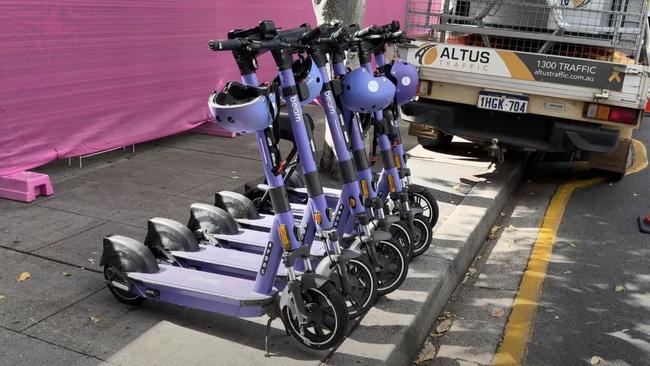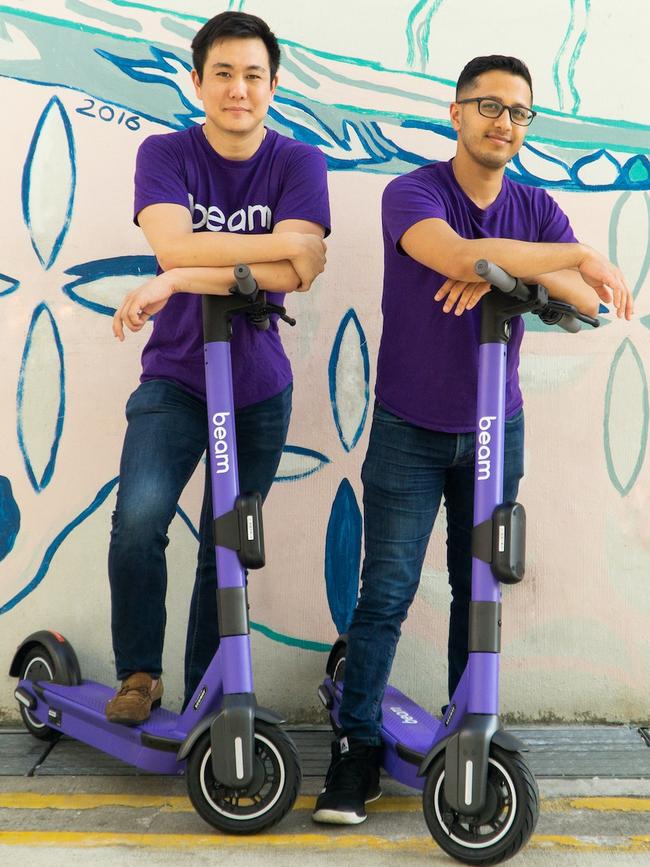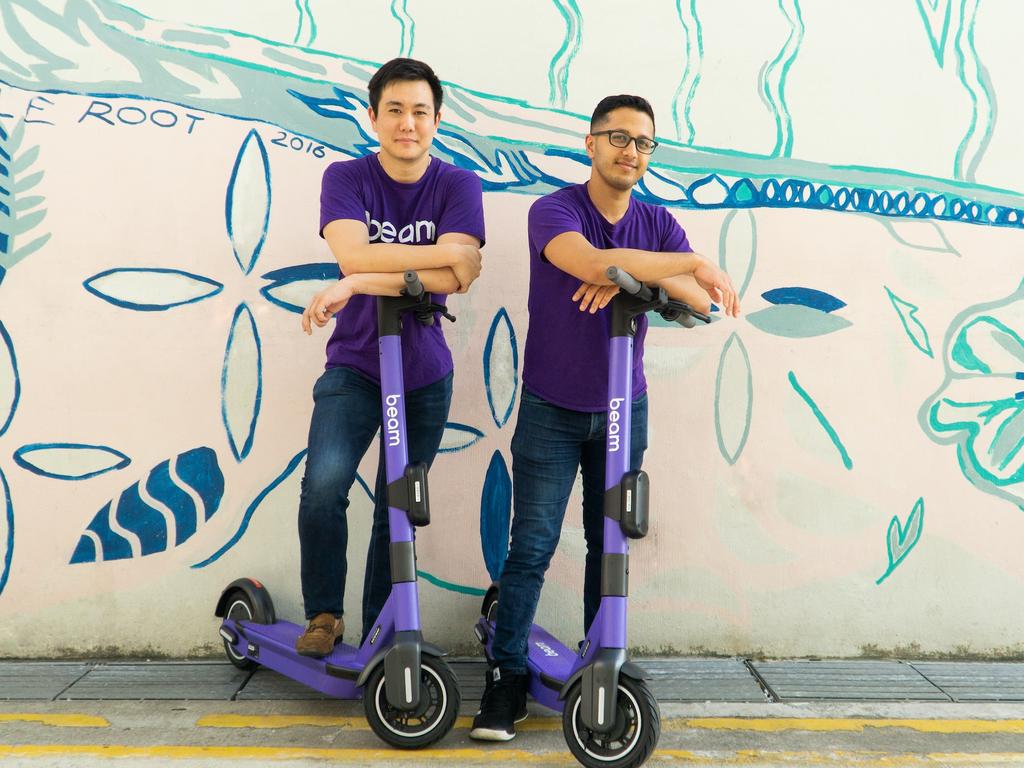Auckland cancels Beam Mobility’s licence over e-scooter ‘scam’
Auckland has reported global e-vehicle company Beam Mobility to police and cancelled its scooter licence over the tech firm’s alleged scam in Australia and New Zealand to cheat councils out of fees.

You can now listen to The Australian's articles. Give us your feedback.
Auckland has reported global e-vehicle company Beam Mobility to police and cancelled its scooter licence in the city, over the tech firm’s alleged scam in Australia and New Zealand to cheat councils out of fees and secretly exceed safety caps.
As The Australian reported at the weekend, leaked internal documents revealed Beam had allegedly been putting hundreds of extra e-scooters on the streets – above mandated pedestrian safety caps – and five local governments had launched investigations.
On Tuesday, Auckland became the first location to order Beam Mobility scooters out of the city, after its probe discovered the company “consistently exceeded” the cap by almost 40 per cent between July 26 last year and August 15 this year.
Auckland Council manager of licensing and environmental health Mervyn Chetty said it represented a “serious breach” of the company’s licence conditions.
“Limits on e-scooter numbers are in place for the safety of other road and footpath users and to minimise nuisance in and around our city,” Mr Chetty said.

“It appears that Beam found a way to sidestep these requirements, which is very disappointing and has resulted in a loss of trust and confidence in the operator.
“Beam has not provided a satisfactory response to our concerns, as such we have made the decision to cancel their licence, effective immediately.”
Auckland Council has ordered Beam to deactivate all vehicles by one minute to midnight on Tuesday, and remove them all from the city’s streets by Friday afternoon.
Beam’s cap in Auckland was 1400, but the internal documents obtained by The Australian showed Beam planned to secretly exceed that by at least 300 vehicles.
Mr Chetty said the evidence suggested Beam had provided misleading data to Ride Report – the independent app some councils use to monitor scooter numbers and rides – to “appear compliant with cap limits”.
“We have not taken the decision to cancel Beam’s licence lightly, however, once we had reason to believe there were clear breaches of the licence conditions, we were able to quickly verify the scale and seriousness of the changes to the data.”
The council says it will now refer the matter to police for further investigation.
In some council areas, Beam is required to pay an annual registration fee for each scooter, and a percentage of each fare to the local government. For example, until recently Beam paid Brisbane City Council $650 per scooter per year; avoiding those fees for the alleged 250 extra vehicles deployed as part of the alleged scam would have cheated the council out of an estimated $162,500 annually.
The internal communication between Beam executives revealed the company expected to rake in an extra $150,000 monthly profit from the alleged scam, with extra vehicles to be deployed in Brisbane, Auckland, Wellington, Canberra and Townsville. Other documents also suggested Adelaide would be targeted.
Beam chief executive Alan Jiang has said the company was deeply sorry for “unintentionally” exceeding the vehicle caps in some cities but insisted it was not a “scheme to deprive councils of revenue”.
Brisbane, Wellington, Canberra and Townsville are still investigating the allegations.
A spokesman for the City of Adelaide said preliminary investigations did not show “evidence of data manipulation within the city and North Adelaide”. Under the city cap, Beam can deploy 800 e-scooters between October and April, and 600 for the rest of the year.
Operators in Adelaide are charged 50c per e-scooter per day up to a certain number, and then $1 per scooter per day up to the maximum cap limit.
A spokeswoman for the City of Darwin said the council was concerned by the reports of alleged unethical conduct and would meet with Beam, despite the company’s assurances there was no data discrepancies in the Northern Territory capital. She said the operation and approvals for micromobility vehicles in the NT was different to other states.
“Even though City of Darwin is not affected by any reporting anomalies, we expect that our suppliers and partners conduct themselves to the highest standards of integrity, honesty and transparency, and we will continue to uphold these high expectations on behalf of our community.
“We will be seeking further assurances (from Beam) that they are operating in line with all relevant regulatory, reporting and license conditions.”
In Tasmania, where Beam is the exclusive e-scooter provider to Hobart and Launceston councils, City of Hobart chief executive Michael Stretton said the council had contacted Beam and Ride Report once it became aware of the allegations, but the council’s investigations had “not identified any anomalies”.
“Beam’s contract with the City of Hobart specifies a minimum and maximum number of vehicles on the street each day,” Mr Stretton said.
“We will continue to monitor hire and ride operations closely to ensure community safety and compliance with all commercial obligations.”
Beam is rolling out a trial of 60 e-scooters in the Sydney suburb of Kogarah – through the Georges River Council – but a spokeswoman said the council did not use Ride Report. The company is not required to pay the council fees or other charges during the trial, and Beam has told the council there had been “no discrepancies with the data” provided to Georges River.
Do you know more? Confidentially contact: elkss@theaustralian.com.au or mckennam@theaustralian.com.au




